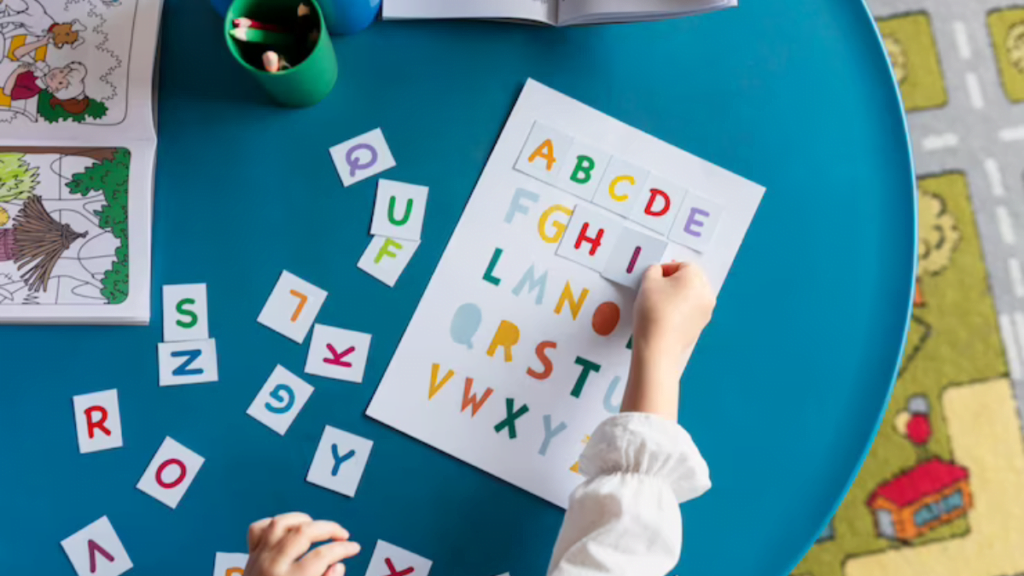Phonics is a method of teaching children how to read and write. It involves breaking words down into individual sounds and then blending them together to form words. Phonics is a fundamental building block for literacy, and it’s essential that children learn it from a young age. In this article, we’ll cover everything parents need to know about phonics and how they can support their child’s learning.
Table of Contents
Understanding Phonics: What is it and Why is it Important?
Phonics is a method of teaching children how to read and write. It focuses on the relationship between sounds and the letters that represent them. Children learn to break down words into individual sounds, called phonemes, and then blend those sounds together to form words.

Phonics is important because it provides children with the tools they need to read and write. By learning phonics, children can decode words they’ve never seen before, and they can spell words correctly based on the sounds they hear.
The Benefits of Phonics Learning for Children
There are many benefits to learning phonics. For one, it helps children develop strong reading and writing skills. It also improves their overall language development and helps them become better communicators. Phonics learning can also boost children’s confidence and self-esteem as they become more confident readers and writers.

How to Teach Phonics: Tips for Parents
Parents play an important role in supporting their child’s phonics learning. Here are some tips to help you teach phonics to your child:
Start Early – Phonics learning should begin as early as possible, ideally in preschool or kindergarten.
Use Phonics Apps and Games – There are many phonics apps and games available that make learning fun and engaging for children.
Read with Your Child – Reading with your child is a great way to reinforce phonics learning and to help your child develop a love of reading.
Practice Phonics Skills Regularly – Consistent practice is key to mastering phonics skills. Make sure your child has plenty of opportunities to practice their phonics skills every day.
Be Patient – Learning phonics takes time, so be patient and supportive as your child learns.

Phonics Teaching Methods: Which One is Right for Your Child?
There are many different phonics teaching methods, and it’s important to choose the right one for your child. Some popular phonics teaching methods include:
Synthetic Phonics – This method teaches children to read by breaking words down into individual sounds and then blending them together to form words.
Analytic Phonics – This method teaches children to read by focusing on the patterns and relationships between words.
Linguistic Phonics – This method teaches children to read by focusing on the meaning and structure of words.
Each child is different, so it’s important to choose a phonics teaching method that works best for your child’s individual needs and learning style.
Common Phonics Mistakes and How to Avoid Them
Phonics learning can be challenging, and many children make common mistakes along the way. Here are some common phonics mistakes and how to avoid them:
Confusing Similar Sounds – Children often confuse similar sounds, such as ‘b’ and ‘d’. Practice with these sounds can help them overcome this issue.
Skipping Words – Children may skip over words they don’t know, leading to incomplete understanding of the text. Encourage your child to slow down and sound out unfamiliar words.
Mixing up Order of Letters – Children may mix up the order of letters in a word, such as spelling “friend” as “freind”. Practicing spelling and writing can help them overcome this issue.
Conclusion
Phonics is a vital part of early literacy learning and it’s important for parents to understand the basics of phonics and how to support their child’s learning. By using phonics apps and games, reading with your child, and practicing phonics skills regularly, you can help your child become a confident reader and writer.
Remember to choose a phonics teaching method that works best for your child’s individual needs and learning style, and be patient and supportive as they learn. With consistent practice and support, your child can become a proficient reader and writer.
Frequently Asked questions
What age should children start learning phonics?
Phonics learning should ideally begin in preschool or kindergarten, around the ages of 3-5 years old.
How long does it take for children to learn phonics?
Learning phonics takes time and practice, but most children can begin to read simple words after a few months of consistent phonics learning.
Are there any phonics apps or games you would recommend?
Yes, there are many great phonics apps and games available. Some popular options include Phonics Hero, Reading Eggs, and Teach Your Monster to Read.
What should I do if my child is struggling with phonics?
If your child is struggling with phonics, try to identify the specific areas they are struggling with and provide extra support and practice in those areas. Consider working with a tutor or teacher for additional support.
How can I make phonics learning fun for my child?
You can make phonics learning fun for your child by using phonics apps and games, reading together, and incorporating phonics activities into everyday life, such as playing I-spy or word scavenger hunts.
Don’t forget to support us by following us on Google News or Returning to the home page TopicsTalk
Join Telegram and WhatsApp for More updates
Follow us on social media






